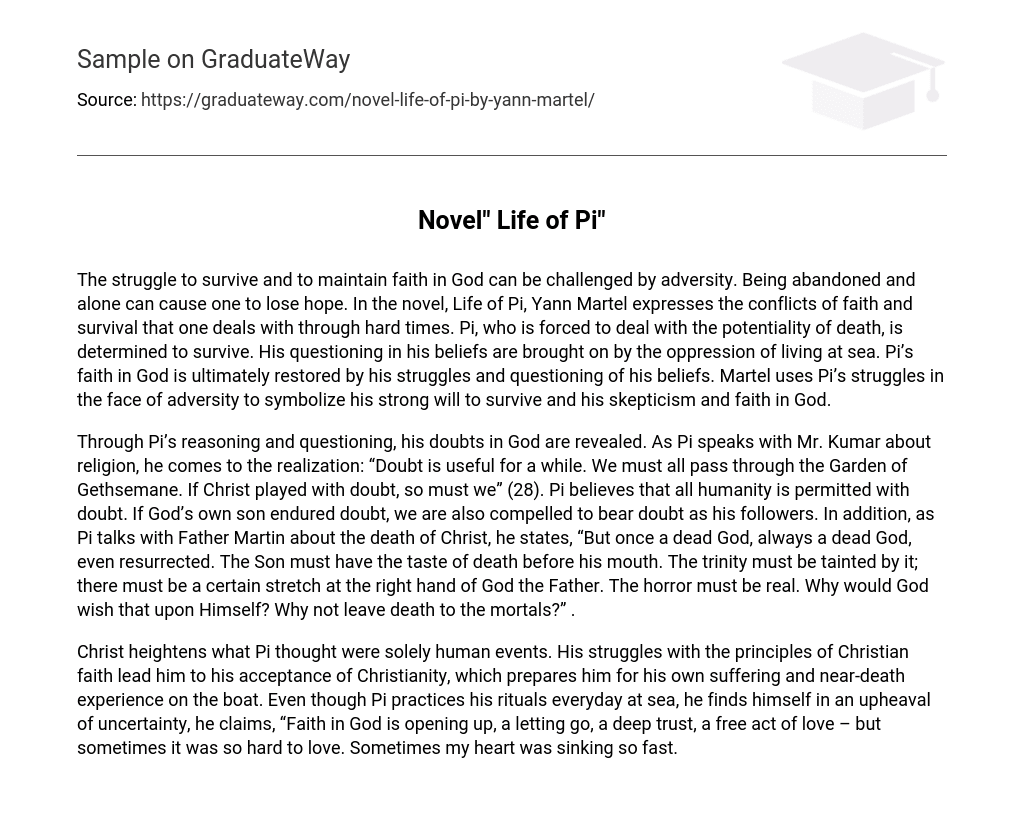The struggle to survive and to maintain faith in God can be challenged by adversity. Being abandoned and alone can cause one to lose hope. In the novel, Life of Pi, Yann Martel expresses the conflicts of faith and survival that one deals with through hard times. Pi, who is forced to deal with the potentiality of death, is determined to survive. His questioning in his beliefs are brought on by the oppression of living at sea. Pi’s faith in God is ultimately restored by his struggles and questioning of his beliefs. Martel uses Pi’s struggles in the face of adversity to symbolize his strong will to survive and his skepticism and faith in God.
Through Pi’s reasoning and questioning, his doubts in God are revealed. As Pi speaks with Mr. Kumar about religion, he comes to the realization: “Doubt is useful for a while. We must all pass through the Garden of Gethsemane. If Christ played with doubt, so must we” (28). Pi believes that all humanity is permitted with doubt. If God’s own son endured doubt, we are also compelled to bear doubt as his followers. In addition, as Pi talks with Father Martin about the death of Christ, he states, “But once a dead God, always a dead God, even resurrected. The Son must have the taste of death before his mouth. The trinity must be tainted by it; there must be a certain stretch at the right hand of God the Father. The horror must be real. Why would God wish that upon Himself? Why not leave death to the mortals?” .
Christ heightens what Pi thought were solely human events. His struggles with the principles of Christian faith lead him to his acceptance of Christianity, which prepares him for his own suffering and near-death experience on the boat. Even though Pi practices his rituals everyday at sea, he finds himself in an upheaval of uncertainty, he claims, “Faith in God is opening up, a letting go, a deep trust, a free act of love – but sometimes it was so hard to love. Sometimes my heart was sinking so fast.





